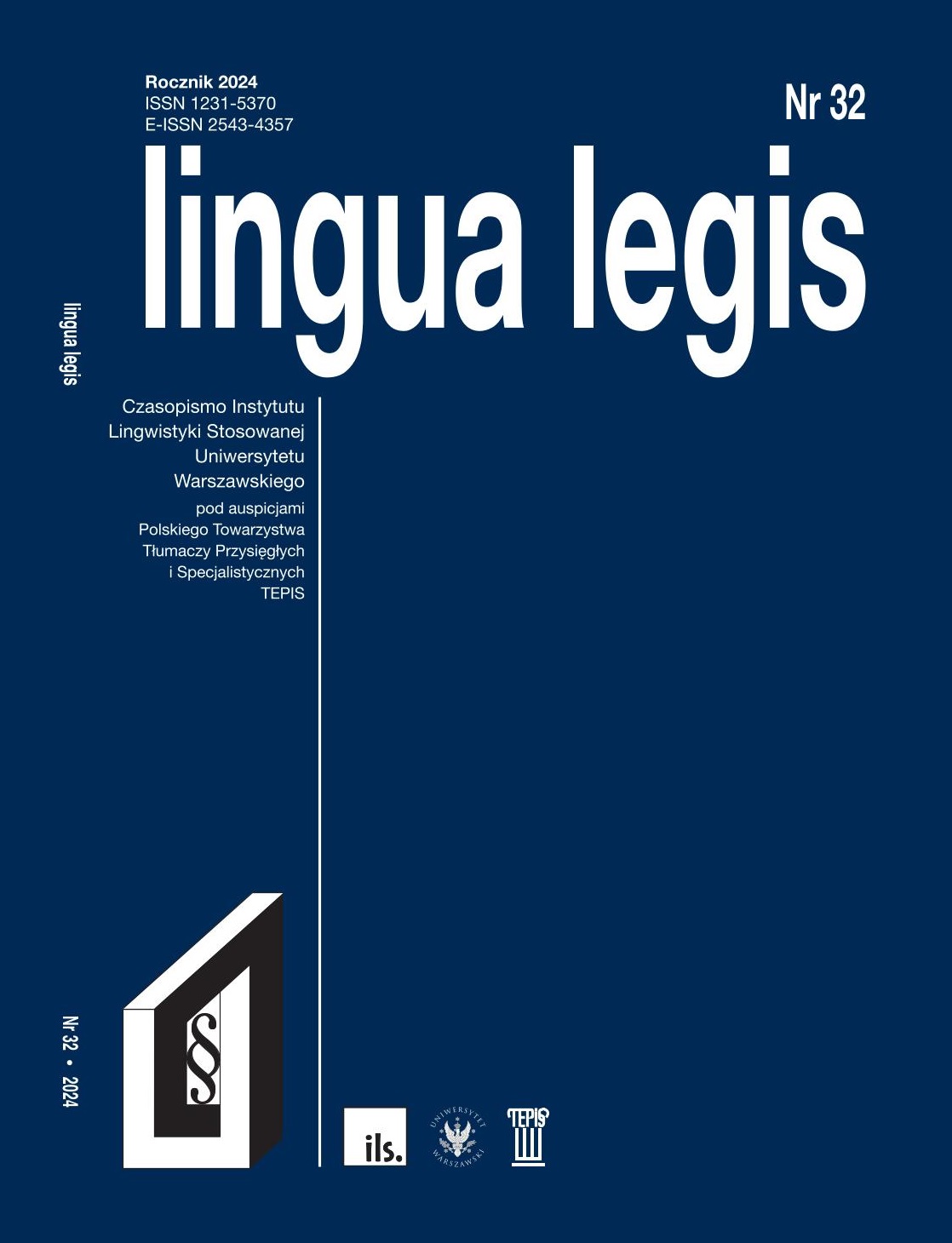

The journal’s policies are based on the guidelines published by COPE, the Committee on Publication Ethics.
Copyrights
Authors are responsible for obtaining permission to use copyrighted material from other sources, where necessary. By submitting manuscripts for publication, authors acknowledge that their article is not published anywhere else. Authors of Lingua Legis submissions retain copyright over their works and have agreed to publish them in open access in Lingua Legis under a Creative Commons Attribution license. This license allows re-distribution and re-use of a licensed work on the condition that the original source is appropriately credited. Thus, Authors may use their text elsewhere after publication provided that Lingua Legis is acknowledged as the original source of publication.
Plagiarism and data accuracy
The Lingua Legis Editorial Team checks articles against plagiarism using plagiarism detection software. Where an article is found to have copied previous work, plagiarised other work or fails to acknowledge existing material the article is barred from publication. The Editorial Team also cross-checks data for accuracy and authenticity.
Editors’ responsibilities
The Editorial Team considers and reviews the journal’s policies, standards and publication mechanisms as well as editorial decisions for each journal issue. Members of the board discuss ethical issues and contentious publication matters, such as cases of plagiarism or potential retraction of articles, for future and published issues. The Editorial Team comprises the Editor-in-Chief, the Deputy Editor- in- Chief and the Editorial Board. The Editorial Team is committed to treating authors with fairness, courtesy, objectivity, honesty and transparency, protecting the authors’ confidentiality and declaring any conflict of interest, as well as publishing corrections, clarifications, retractions and apologies as required.
The Editor-in- Chief has the ultimate responsibility for the editorial process and the provision of clear guidelines regarding manuscript submission and authorship criteria. The Editor-in-Chief has final authority regarding editorial decisions, including accepting or rejecting an article.
Deputy Editor-in-Chief advises the Editor-in-Chief on journal- related decisions, take part in the desk review process, manage special issues and take part in the editing of non-thematic issues. The Deputy Editor-in-Chief communicates with authors regarding the correction of errors and clarifications required before publication and, if required, after publication.
Peer- review process and peer reviewers’ responsibilities
Lingua Legis uses a double-blind peer-review system. Each submission is first screened by the Editorial Team that verifies the eligibility of the text in terms of subject matter and selects two external scholars with expertise in the field. Peer reviewers are asked to evaluate submissions in line with criteria set out in the Lingua Legis peer-review form, providing feedback and a recommendation for the Editorial Team according to the scale: Publish (with minor changes), Essential amendments (Revise and publish subject to peer reviewer’s approval) or Reject. In the case of doubts, the Board may consider it appropriate to obtain a third peer review. The final publication decision is taken by the Editorial Team, taking into account peer-reviewers’ recommendations. Reviewers should disclose any conflict of interest with respect to the research which they are evaluating and agree to provide an objective, neutral, constructive and informed assessment in a timely manner, using the evaluation criteria provided by the Editorial Team. Reviewers are committed to confirming the academic integrity of the paper which they are reviewing to the best of their ability. Reviewers should respect the confidentiality of peer reviews and not use information obtained through peer review to their own advantage. Reviewers agree to conform to the COPE Ethical Guidelines for Peer Reviewers
(https://doi.org/10.24318/cope.2019.1.9).
Authors' responsibilities
Authors pledge to submit authentic previously unpublished research and agree to take part in a peer-review process and to revise the articles as required. They agree to comply with high ethical standards of academic research and standard requirements of academic publishing, such as research integrity and transparency, accurate acknowledgement of sources, authorship attribution, approvals of ethical committees if applicable, declaration of funding and competing interests, etc. Should authors discover errors in their work, they should notify the editor for corrections. They agree to comply with the Guidelines for Authors regarding formatting, references, and acknowledgement of financial support if relevant. They are aware that plagiarism, the inclusion of fraudulent data, and previous publication of their article in another book or journal, including in another language, would lead to the retraction of their article.
Guidelines for retracting articles
The general editor contacts the author in case of the potential retraction of an article. An article will be considered for retraction in the interest of academic integrity in the following cases:
the article content provides substantial false or unreliable information either through fraud or genuine error which cannot be corrected, the article was previously published elsewhere
the article plagiarises previously published information. Retracted articles will be removed from the journal’s site and a notice of retraction posted on the issue’s table of contents.

No. 32 (2024)
Opublikowane: 2025-04-14
 10.12345
10.12345